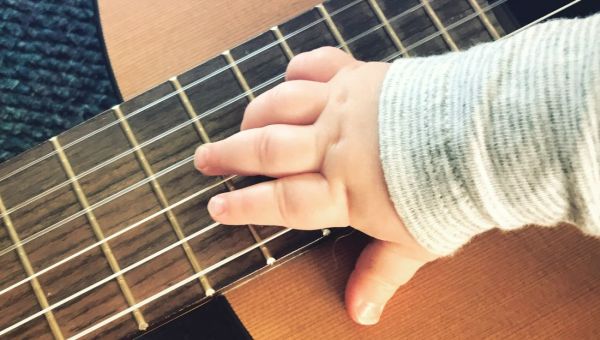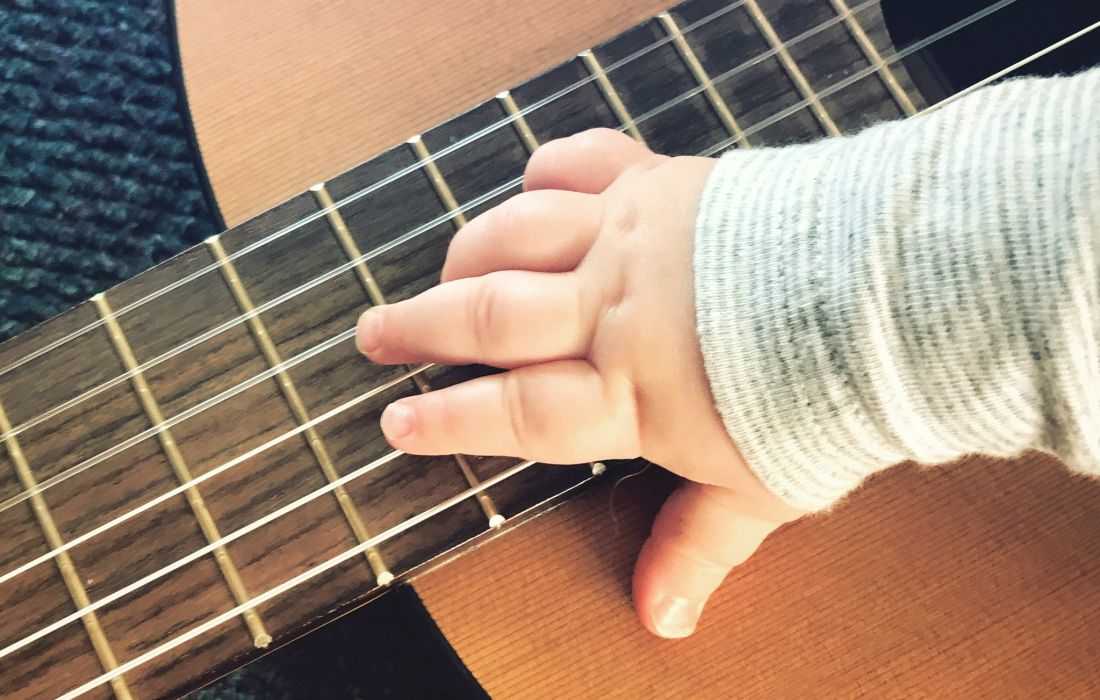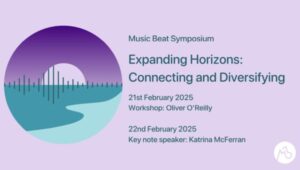
Active Parks: Music And Movement Program
Active Parks Music Program dates for 2025 – 2026 We are happy to announce that Music Beat Kids – the home of Boppin’ Babies –

The idea of sensory has gone mainstream in recent years.
So much so that you might be getting the message that if you aren’t doing ‘sensory’ then you are not doing the best by your child.
While it important that babies receive appropriate sensory stimulation to learn and grow, it is equally important that they are not overstimulated.
I am not the only clinician and researcher who is concerned about the current trend to overstimulate infants and toddlers in the name of development.
At the World Congress of Music Therapy in July 2017 this current trend to incorporate all things ‘sensory’ into therapy, education and treatment programs was raised in a Q&A session.
I was quite relieved to hear this because I have personally and professionally been concerned about this for some time.
All children require sensory input to learn how to integrate their sensory experiences.
Here’s the scoop: they will generally receive this simply being with you and participating in their world.
If you’re looking for more for your child, I suggest a gentle approach in a group that doesn’t overstimulate in the name of development.
In certain clinical areas, sensory stimulation is extremely important and more focused.
For children who experience sensory processing disorders, they sometimes require greater sensory input from stimuli before they can feel.
So they may need weighted cushions or bean bags on their laps to help them sit, or wobble cushions to sit on, or need fidget devices to settle (think the fidget spinner craze).
As a mother I know what it feels like to want to give my child the very best.
It is easy to forget that it is the simple things that our babies need; to be loved, to be held and touched, to be looked at with meaning, and to be sung to.
This is what the researcher in me refers to as ‘multi-modal stimulation’ and this is what my fellow researchers have shown is best for normally developing babies.
At Music Beat Kids – the Home of Boppin’ Babies – we run a music early learning program, not a sensory class.
That is because music is a multi-sensory experience in itself, children do not require the layering of senses on top of this.
What they need is you, their parent, to help them learn how to integrate these sensory experiences. This is how they experience music in a sensory based way.
Your baby hears your voice from before they are born. So the human voice is a sound babies will seek out, especially high pitched female voices.
That’s why we grown-ups speak to babies in a higher pitched voice, at a slower tempo while engaging with facial expressions. We all do this and that is because our little people respond to this infant-directed way of speaking.
Many parents do this without even knowing this is the biological role you play – singing and speaking to your bubs in emotionally charged ways that help them learn about their culture, language, emotions and their environment.
That’s why all of our music groups are voice led and played live. We support you to sing so your bub gets the best of both of these worlds.
Your baby will hear the instruments that we play and explore together. We use age and developmentally appropriate instruments in our groups to allow for this exploration. The different instruments make different sounds, as well as different pitches and timbres.
Your baby will hear the pitch modulation in the songs that we sing. Babies are born music capable – this means they have adult capacities to hear, and the cognitive capacities to interpret aural stimulation.
You will notice that your baby watches the group leader as she plays her guitar and sings. They see her smile and react emotionally when she sings, they see her body move in time with the sound she is producing.
Your baby will see the different instruments we use as well as the basic props like ribbons, which are colourful and made up of different shapes and sizes.
They will visually track the sounds of our voices, the instruments and your voice and hands when we do action songs.

Babies feel music with their whole bodies.
Have you ever noticed how babies bop to music when they hear it (once they are sitting up)? I loved this so much I named my business after it!
We humans feel music before we actually interpret the sounds we are hearing, and babies demonstrate this so beautifully when they bop, and toddlers when they dance.
At Music Beat Kids we play all our music live so that we can actually change the tempo and pace of our music to match the rhythm of the children when they do start moving in sync with the music.
Babies also sit on our group leaders’ laps sometimes, behind the guitar and feel the vibro-acoustic stimulation through the wood. Or they crawl up and touch the guitar and strings and feel this physical sensation.
If bub is with you, they feel you singing, the vibration through your body is very warm and soothing for little people (and for you too just quietly).
Babies feel the emotions in music. From an evolutionary perspective, this is how they begin to learn about emotions. Long before they can talk, they pick up on the emotional intent of our musical interactions with them.
Babies feel the vibrations through the big floor drums we use, or through the hand drums you hold with them. They feel the different sensations of the shakers, some smooth, some rough, the different sizes of the bells, the cool metal, and the warm wood.
Babies feel the beat of the music through the simple dances we do with bub in your arms each week. They are simple because that is what is best for bub, and easy for you to do at home.
Babies feel how their bodies respond to music and how to manage this through the big movement activities we do, like bouncing on the therapy balls or on the Bop Along Buddies.
Babies explore their sensory environment in an olfactory way. That is they put everything in their mouths!
Our instruments are appropriately chosen to allow for this in safe ways (and cleaned!)
As you can see I could go on all day, I haven’t even started on toddlers yet!
The thing about the bubs is they can’t tell you if they are overstimulated.
Because every child is different an activity that’s fun and entertaining for your baby may lead to tears for another, so there is no right or wrong level as such.
At Music Beat Kids our group leaders play all their music live, and will moderate the activity to the children in the group – ramping up the activity when appropriate and calming things down when it’s needed.
Singing and sharing music and books at home are some of the best things you can do for your bub.
If you want some support with the music side, or want to get out of the house and meet new people then come and join us. We will share some beautiful moments making music with you and making memories for life.
Our approach allows you and your baby time to relax and for bubs this means their growing brains have time to process the sensory inputs without becoming over stimulated.
So don’t be taken in by the razzmatazz.
Forget the phone, forget the appointments, don’t worry about milestones for now – just be together in this moment, and take delight in their beautiful musicality.
Singing, touching and eye contact are the foundations of loving relationships.
Come and join us where we offer a beautiful, gentle, relaxing and nurturing environment that focuses on fostering and supporting your relationship with your baby through musical play.
Save
Save
Save
Save
Save
Save
Save
Save
Save

Active Parks Music Program dates for 2025 – 2026 We are happy to announce that Music Beat Kids – the home of Boppin’ Babies –

Expanding Horizons: Connecting & Diversifying The Music Beat Australia Workshop and Symposium is an opportunity for Registered Music Therapists (RMTs) to gather, share, collaborate, and